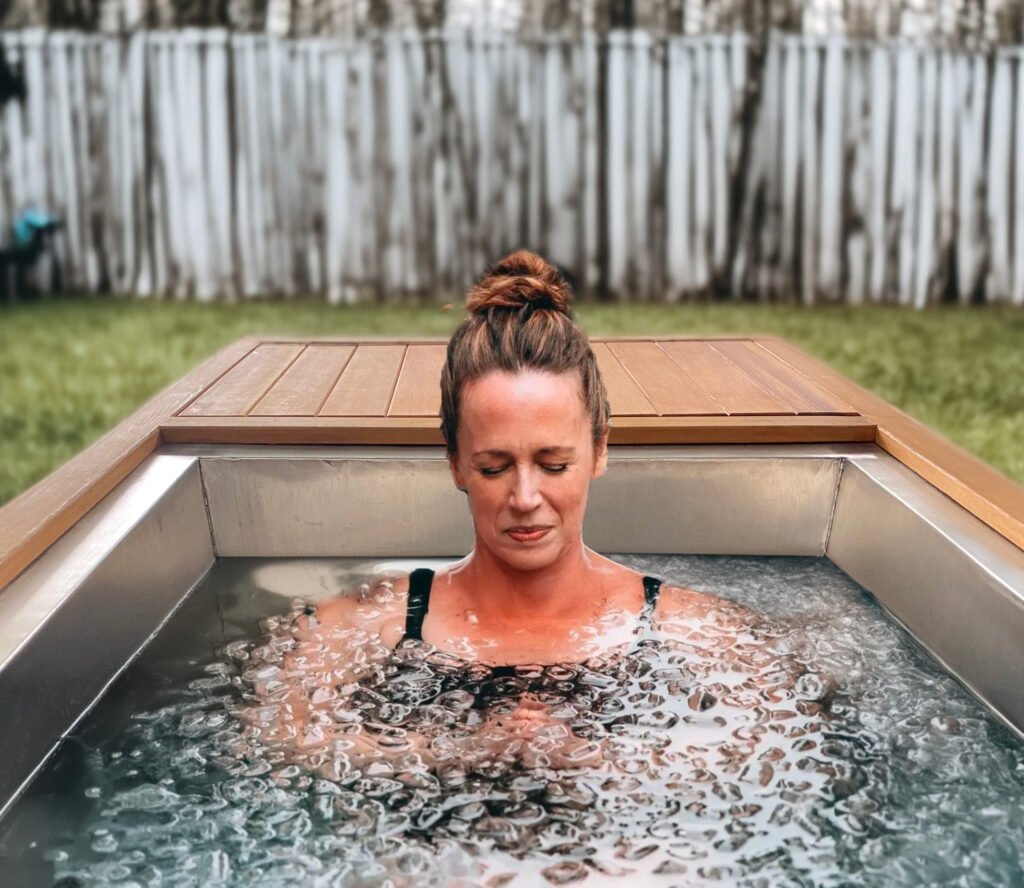Cold Water Immersion: A Powerful Remedy for Stress Relief
Lucie
December 28, 2024

In today’s fast-paced world, stress seems inevitable. Whether it’s work pressures, personal challenges, or the constant demand for multitasking, it’s easy to feel overwhelmed. But what if the solution to relieving stress is something as simple as a cold water immersion?
Cold water immersion, also known as cold water therapy, has been practiced for centuries across various cultures for its stress management and mental health benefits. From ancient Roman baths to Finnish winter swimming, this natural remedy has stood the test of time. In modern wellness circles, it’s gaining popularity as a powerful tool to help manage stress and enhance overall well-being.
So, what happens when you take the plunge? Let’s explore the science behind cold water immersion and how it can work wonders for your mental and physical health.
Stress Relief at Its Core
When you immerse your body in cold water, it triggers a series of physiological effects designed to help the body cope with stress. The initial shock of the cold triggers a “fight or flight” response, releasing hormones like adrenaline and cortisol. While this might sound like a bad thing, it actually helps prepare your body to handle stress more effectively, leaving you feeling more alert and focused.
But the real magic happens after the initial shock. Cold exposure also stimulates the release of endorphins—your body’s natural painkillers—and boosts the levels of serotonin and dopamine. These “feel-good” hormones lift your mood, calm anxiety, and leave you with a sense of euphoria. It’s like your body gets an instant reset, pushing the mental fog aside and replacing it with clarity.
Regular cold water immersion doesn’t just provide short-term relief; it can help with long-term stress management. Studies show that repeated exposure can lower cortisol levels, improving your body’s resilience to stress over time. The more you practice, the better you’ll be at managing everyday stressors.
Cold Water Immersion for Stress Relief: How to Get Started
If you’re new to cold water immersion, don’t worry—you don’t have to jump straight into an ice bath! There are various ways to ease yourself into it, starting with something as simple as a cold shower.
Step 1: Start with Cold Showers
This is probably the easiest way to get started. Take a warm shower as you normally would, then gradually switch to cold water for the last 30 seconds. Over time, you can extend the duration and even make the water colder as your body adjusts.
Step 2: Try Ice Baths
If you’re feeling more adventurous, ice baths offer a more intense experience. To prepare, fill your bathtub with cold water and add ice until it’s around 10°C (50°F). Start by immersing yourself for just 1-2 minutes and gradually increase the duration as you get more comfortable.
Step 3: Swim in Cold Water Outdoors
For those who love nature, outdoor swimming in cold lakes or the sea can be incredibly refreshing. Be sure to check the water temperature beforehand and always swim with a buddy for safety.
No matter which method you choose, always listen to your body. Cold water immersion should never be painful, and if you feel lightheaded or uncomfortable, it’s important to stop immediately.

More Than Just Stress Relief
Cold water immersion isn’t just about managing stress; it also comes with a range of mental health benefits that can improve your overall well-being. Aside from reducing stress, regular cold exposure can help with:
Enhanced mood regulation: As mentioned, cold water immersion boosts serotonin and dopamine, which play a crucial role in regulating mood. This means that you’ll likely feel more positive, focused, and emotionally balanced after a cold plunge.
Improved sleep quality: Many people who practice cold water immersion regularly report better sleep. The increase in endorphins and the relaxation that follows can help your body wind down, leading to a more restful night’s sleep.
Stronger immune system: Cold exposure can stimulate the production of white blood cells, helping to strengthen your immune system and make you less susceptible to illness.
Real Stories: How Cold Water Immersion Transformed Lives
Cold water immersion is more than just a trend—it’s a lifestyle change that’s helping people manage stress and improve their quality of life. Many individuals who regularly practice cold water therapy have shared their transformative experiences.
Take Sarah, a corporate executive from New York City. With her demanding job and busy schedule, stress was a constant companion. But after incorporating cold water immersion into her daily routine, she found a sanctuary of calm in the midst of her chaotic life. “It’s like hitting the reset button for my mind,” Sarah says. “The clarity I feel afterward is incredible. It’s helped me manage stress in ways I never imagined.”
For Jason, a father of three, cold water immersion provided an unexpected benefit. “Balancing work and family life can be overwhelming. But taking a quick cold plunge helps me clear my head and recharge. It’s a game-changer for my mental health,” he explains. “I’m more present with my kids, and I’m handling stress much better than before.”
These personal stories highlight how cold water immersion can be a powerful tool for stress management and mental wellness. When combined with a supportive community or wellness group, the benefits are even greater.
Beat Stress with Cold Water Immersion
If you’re seeking a natural and effective way to manage stress, cold water immersion could be the answer. From its physiological effects that help reduce cortisol to its ability to elevate mood and improve sleep, this practice offers a wide range of mental health benefits. Whether you’re starting with cold showers, jumping into an ice bath, or swimming outdoors, the key is consistency and listening to your body. Over time, you’ll not only notice a reduction in stress but also improvements in your overall well-being.
So, why not give it a try? Take the plunge and see how cold water immersion can help you manage stress, improve your mood, and build resilience for life’s challenges.





As a Newbie, I am always searching online for articles that can be of assistance to me. Thank you
I gotta favorite this web site it seems handy very useful
obviously like your website but you need to check the spelling on several of your posts. Several of them are rife with spelling problems and I find it very troublesome to tell the truth nevertheless I will definitely come back again.
I was recommended this website by my cousin. I’m not sure whether this post is written by him as nobody else know such detailed about my problem. You’re amazing! Thanks!
Excellent blog here! Also your site loads up very fast! What host are you using? Can I get your affiliate link to your host? I wish my web site loaded up as quickly as yours lol
I’m using Hostinger’s hosting package, if you want to buy it you can use my discount link: https://hostinger.com.hk?REFERRALCODE=1678845
Hey very nice web site!! Man .. Excellent .. Amazing .. I will bookmark your site and take the feeds also…I am happy to find so many useful info here in the post, we need work out more strategies in this regard, thanks for sharing. . . . . .